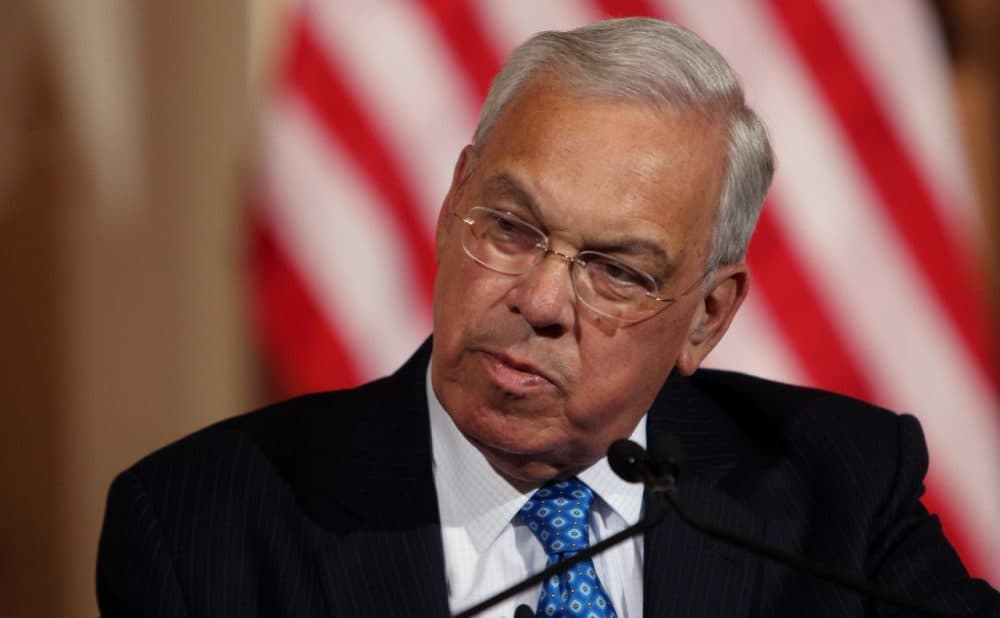Advertisement
Tom Menino's Initiative On Cities
Resume
Yesterday, we talked to former Boston Mayor Tom Menino about his health. Specifically, that he's been diagnosed with an advanced form of cancer that has spread to his liver and lymph nodes. As we heard, Menino is optimistic about HIS future — and remains committed to his new work just down the road from us here at Boston University.
In fact, that's what we had originally planned to talk to him about before we learned of his cancer diagnosis. So we're going to hear about that today: After leading the city for 20 years, Menino is setting up something call The Initiative On Cities at B.U. It's a kind of urban think tank, that will tap his experience in city hall to help train urban leaders around the country and the world.
"I think cities are the new engine for America and for the world. That's where all the creativity is coming out of. It's not coming out of Washington or from the states — and that's important," Menino told us.
Menino is setting up the Initiative on Cities with Graham Wilson, Chairman the political science department at B.U. We talked to both of them about the initiative's main goals and how cities are in the best position to solve some of the nation's most vexing challenges — from education, to housing to income inequality:
Guests
Tom Menino, former mayor of Boston and co-director of the Boston University Initiative on Cities. He tweets at @mayortommenino.
Graham Wilson, chair of the political science department and co-director of the Boston University Initiative on Cities.
More
Boston Globe "Menino has been hired to help launch a new Institute on Cities, where mayors and municipal managers from across the globe can share ideas as they tackle urban issues. The center might offer boot camps for city officials, act as a clearing house where municipalities could compare data, and serve as a think tank for cutting-edge urban problem solving."
This segment aired on March 18, 2014.